Ata-ul-Haye Nasir, Al Hakam
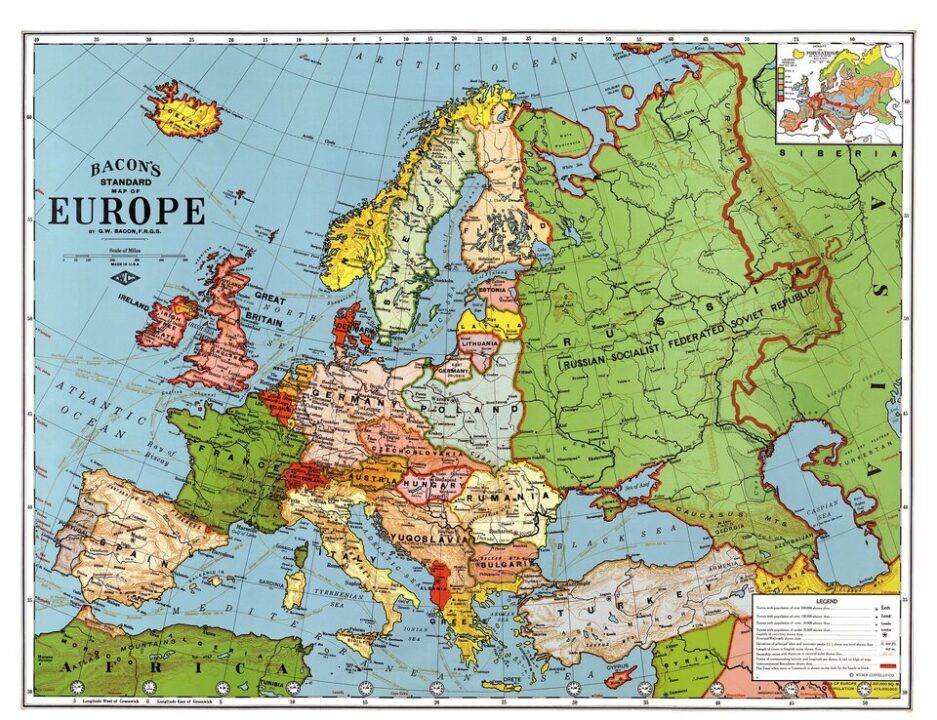
On 13 January 2022, during a meeting of the Organization for Security and Co-operation in Europe (OSCE), the foreign minister of Poland, Zbigniew Rau said Europe faces the greatest risk of war in 30 years.
“‘It seems that the risk of war in the OSCE area is now greater than ever before in the last 30 years,’ Rau had told delegates earlier. ‘For several weeks we have been faced with the prospect of a major military escalation in eastern Europe.’” (The Guardian, 13 January 2022, “Russia threatens military deployment to Cuba and Venezuela as diplomacy stalls”)
He further said, “We should focus on a peaceful resolution of the conflict in and around Ukraine,” and show “full respect of the sovereignty, territorial integrity and unity of Ukraine within its internationally recognised borders”. (Al Jazeera, 13 January 2022, “Russia says NATO talks ‘unsuccessful’ as Poland warns of war”)
In response, Russia’s envoy to the OSCE, Alexander Lukashevich said:
“If we don’t hear constructive response to our proposals within a reasonable timeframe and aggressive behaviour towards [Russia] continues, we’ll have to take necessary measures to ensure strategic balance and eliminate unacceptable threats to our national security.” (Ibid)
The talks during this meeting focused on Russia’s security demands from the West and its build-up of troops near Ukraine. The Russian officials stressed that it is their right to deploy troops on “their territory” however they chose and blamed NATO for destabilising the region.
The Russian envoy also warned, “A crisis on the continent may arise with unpredictable consequences for European security.” (The Guardian, 13 January 2022, “Russia says talks with NATO over Ukraine are hitting a dead end”)
Russia’s deputy foreign minister said that talks with the US over the security situation in Ukraine had stalled and suggested that Moscow could dispatch a military deployment to Venezuela and Cuba, as the Kremlin seeks to pressure Washington to meet its demands to halt Western military activity that Russia claims poses a threat. (The Wall Street Journal, 13 January 2022, “Russia Suggests Military Deployment to Venezuela, Cuba if Tensions With U.S. Remain High”)
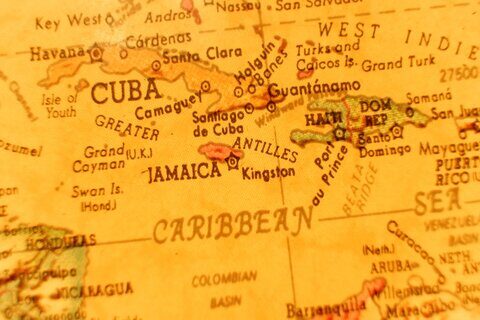
On 14 January 2022, about 70 websites of the Ukrainian government were temporarily down, which was termed as the largest cyber-attack on Ukraine in four years. Before the sites went offline, a message appeared warning Ukrainians to “prepare for the worst”.
“Ukraine has said it has ‘evidence’ Russia was behind a massive cyber-attack that knocked out key government websites last week, while Microsoft warned the hack could be far worse than first thought.” (The Guardian, 16 January 2022, “Ukraine says evidence points to Russia being behind cyber-attack”)
The Ukrainian digital transformation ministry said in a statement that “All the evidence points to Russia being behind the cyber-attack” and “Moscow is continuing to wage a hybrid war.” (Ibid)
“The Washington also accused Russia of sending saboteurs trained in explosives to stage a ‘false flag’ operation that could be the pretext to invading its pro-western neighbour.” (Ibid)
The Ukrainian government has demanded from Germany that it prove itself to be “a true friend” by delivering weapons to help avert the threat of war on its Russian border. The Ukrainian ambassador to Germany, Andrij Melnyk said:
“The Ukrainian people are deeply disappointed. The moment of truth has now arrived to show who our true friends are.” (The Telegraph, 16 January 2022, “Ukraine demands ‘true friend’ Germany send weapons to ward off Russian invasion”)
The British Conservative MP, Tobias Ellwood (Commons Defence Committee chairman) said:
“I am afraid an invasion by Russian forces is inevitable and imminent and we have allowed this to happen. We had the opportunity to place sufficient military hardware and personnel in Ukraine to make president Putin think twice about invading but we failed to do so.” (Evening Standard, 16 January 2022, “Russian invasion of Ukraine ‘inevitable and imminent’”)
The New York Times reported:
“Mr. Putin wants to extend Russia’s sphere of influence to Eastern Europe and secure written commitments that NATO will never again enlarge. If he is frustrated in reaching that goal, some of his aides suggested on the side-lines of the negotiations last week, then he would pursue Russia’s security interests with results that would be felt acutely in Europe and the United States.
“There were hints, never quite spelled out, that nuclear weapons could be shifted to places – perhaps not far from the United States coastline – that would reduce warning times after a launch to as little as five minutes, potentially igniting a confrontation with echoes of the 1962 Cuban Missile Crisis.” (The New York Times, 16 January 2022, “Russia Issues Subtle Threats More Far-Reaching Than a Ukraine Invasion”)
BBC reported:
“Sweden moved hundreds of troops over the weekend to its strategically important Gotland island – which lies in the Baltic Sea. And Denmark strengthened its presence in the region a few days before that.
“The rising tensions have also re-ignited the debate in both Finland and Sweden as to whether they should now join NATO.
“But the overarching concern in the West – Washington, NATO, the UK and the EU – is less the possibility of conventional warfare over Ukraine, and far more, that Moscow is seeking to divide and destabilise Europe – shaking up the balance of continental power in the Kremlin’s favour.” (BBC, 17 January 2022, “Russia-Ukraine crisis: Why Brussels fears Europe is ‘closest to war’ in decades”)
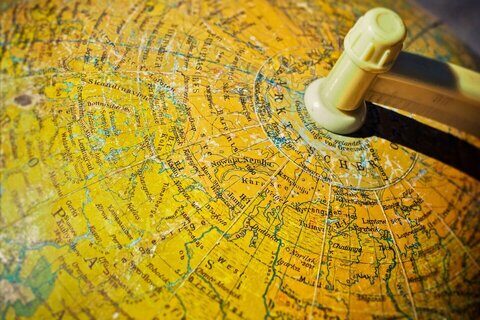
During a visit to Kyiv, the German foreign minister, Annalena Baerbock said that she was ready for serious dialogue with Russia about mutual security, but was not willing to backtrack “on basic principles such as territorial inviolability, the free choice of alliances and the renunciation of the threat of violence”.
She added, “Each further aggressive act will have a high price for Russia, economically, strategically, politically”, and “Diplomacy is the only way.” (The Guardian, 17 January 2022, “Russia would pay ‘high price’ for attack on Ukraine, says German minister”)
On 17 January 2022, Ben Wallace, the UK’s Secretary of State for Defence told the parliament, “We have taken the decision to supply Ukraine with light anti-armour defensive weapons systems”, and “a small number” of British troops would provide training to help Ukrainian forces in using them. (The Guardian, 17 January 2022, “UK supplying Ukraine with anti-tank weapons, MPs told”)
On a visit to the Ukrainian capital Kyiv, Mr Blinken said Russia had built up troops near Ukraine’s borders with “no provocation, no reason”. He added, “We know that there are plans in place to increase that force even more on very short notice, and that gives President [Vladimir] Putin the capacity, also on very short notice, to take further aggressive action against Ukraine.” (BBC, 19 January 2022, “Ukraine tension: Blinken says Russia could attack at short notice”)
Mr Blinken accused Russia of trying to weaken Ukraine’s diplomatic institutions and divide Ukrainian society “using everything from election interference to disinformation to cyber attacks.” (Ibid)
“Russian troops are believed to have set up camp in Belarus at a base 25 miles from the Ukrainian border, as President Biden said he suspected that President Putin was preparing to invade.
“The Conflict Intelligence Team (CIT), a group of independent Russian researchers, said Russian military hardware had been spotted in Belarus’s Gomel region, just a short distance from Ukraine.” (The Times, 20 January 2022, “Russia will invade Ukraine, says Joe Biden as troops mass near border”)
The prime minister of the UK, Boris Johnson said:
“If Russia were to make any kind of incursion into Ukraine on any scale whatever I think that would be a disaster for not just for Russia, it would be a disaster for the world.” (Independent, 20 January 2022, “Boris Johnson warns of ‘disaster’ for Russia if it invades Ukraine”)
Just two weeks ago, five of the world’s most powerful nations – the US, Russia, China, the UK and France – had agreed that “a nuclear war cannot be won and must never be fought” in a rare joint pledge to reduce the risk of such a conflict ever starting. (The Guardian, 3 January 2022, “Five of world’s most powerful nations pledge to avoid nuclear war”)
The world leaders are required to stay firm on this pledge, otherwise the world could face a huge devastation, about which Hazrat Mirza Masroor Ahmadaa, Khalifatul Masih V had been warning the world for the past two decades.
On 24 March 2012, during his keynote address at the 9th Annual Peace Symposium of Jamaat-e-Ahmadiyya UK, Huzooraa said:
“Japan is the one country to have experienced the abhorrent consequences of atomic warfare, when it was attacked by nuclear bombs during the Second World War […] The nuclear bombs that were used at that time and which caused widespread devastation, were much less powerful than the atomic weapons that are possessed by even very small nations today […] Let it be clear that if nuclear weapons are used again today, then it is quite possible that parts of certain countries could be completely wiped off the map. They could cease to exist […] Recently, a very senior Russian military commander issued a serious warning about the potential risk of a nuclear war. It was his view that such a war would not be fought in Asia or elsewhere, but would be fought on Europe’s borders, and that the threat might originate and ignite from Eastern European countries.” (“The Devastating Consequences of a Nuclear War and the Critical Need for Absolute Justice”, www.reviewofreligions.org)
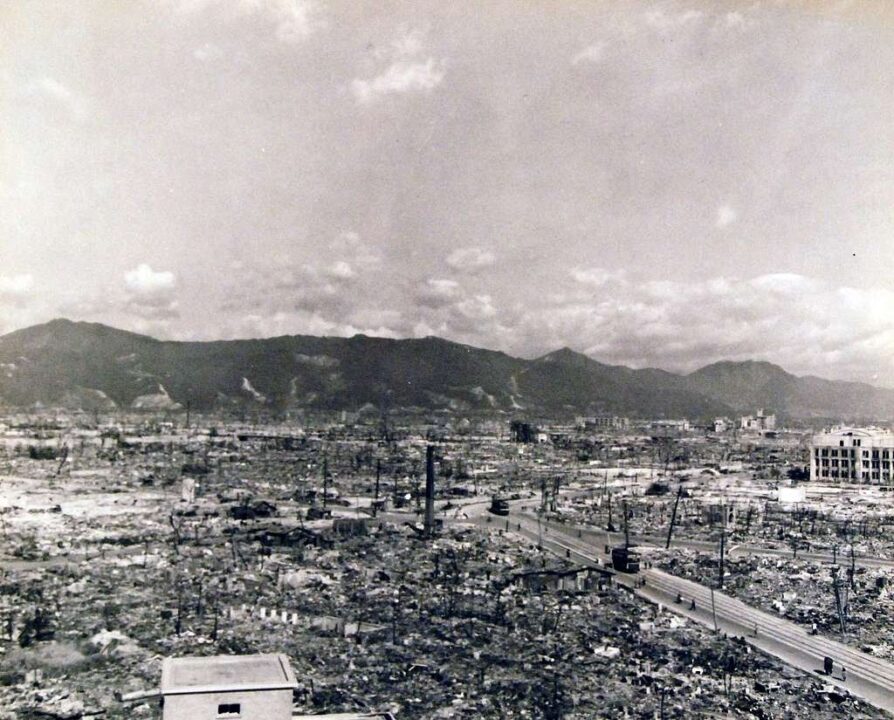
On 9 March 2019, while addressing the 16th Annual Peace Symposium of Jamaat-e-Ahmadiyya UK, Huzooraa stated:
“If there is a nuclear war, we will not only be destroying the world today but we will also be leaving behind a lasting trail of destruction and misery for our future generations. Hence, we must pause and reflect on the consequences of our actions. We should not consider any issue or conflict, whether within a country or at an international level, to be insignificant.” (“Head Of Ahmadiyya Muslim Community Warns Of Intensifying Global Hostilities And The Risk Of Disastrous Nuclear War”, www.pressahmadiyya.com)
The recent reminder from Poland about a high risk of war in Europe also speaks volumes about the hostilities and conflicts within Europe.
There is a great need for de-escalation and establishment of peace, about which the Ahmadiyya Khalifa, Hazrat Mirza Masroor Ahmadaa has been speaking for a long time.
Whilst addressing the 10th Annual Peace Symposium of Jamaat-e-Ahmadiyya UK, on 23 March 2013, Hazrat Mirza Masroor Ahmad, Khailfatul Masih Vaa said:
“We should not sit here and only be concerned at the prospect of becoming involved in wars that are taking place in Asia, but we should also be extremely concerned about the problems on our own doorsteps. If we look at Europe’s own financial crisis and its long-term effects we see that it is causing restlessness to spread within Europe’s population and this anxiety is increasing at great speed. If not handled properly, the results of such frustrations and desperation will prove to be catastrophic.
“Thus, it is the duty of all powers to fulfil the requirements of justice and to unite together. All parties need to increase dialogue and open the lines of communication so that they can peacefully discuss the best means to solve the problems of the world. These steps are necessary so that global peace can be established.” (“The Critical State of World Peace”, www.reviewofreligions.org)
On 14 March 2015, while addressing the 12th National Peace Symposium of Jamaat-e-Ahmadiyya UK, Huzooraa said:
“The world is being consumed by various issues that are leading to frustration and resentment, which in turn are undermining peace. For example, the effects of the financial crisis continue to be felt in much of the world. […] Then there is the conflict in Ukraine and the global arms race. These are all threats to world peace that are not linked to Islam, but rather have developed as a result of an unquenchable thirst for power, influence and resources. […]
“Whilst some are saying that another World War is now unavoidable, I believe that even now there is time for the world to wake up to the stark reality it faces and to arrest this threat. To do so, all people and their leaders will need to stop looking only in one direction and caring only for their own interests. Instead, they must seek to fulfil the requirements of justice, fairness and honesty at all levels of society.” (“Muslim Leader says Justice and Honesty required to prevent Outbreak of third World War”, www.pressahmadiyya.com)
On 23 November 2015, while addressing a special reception held at the Hilton Hotel in Odaiba, Tokyo, Huzooraa said:
“We are living in extremely precarious and dangerous times, in which the state of the world is a cause of huge concern. Conflict and disorder is consuming the world and threatening international peace and security. […] In Eastern Europe, hostilities between Russia and Ukraine and other European countries are continuing to flare. Furthermore, recently there has been heightened tension between the United States and China regarding the incursion of an American warship into the South China Sea. […]
“The world is now becoming engulfed by violence and disorder. In the modern world, the scope of warfare is much more vast than in previous eras. Conflicts in one part of the world do not remain limited or local, rather their effects and consequences spread much further afield. […] For many years, I have been warning that the world should realise that the effects of a war in one region can and will affect the peace and harmony of other parts of the world. […]
“Now it is not just the major powers that have nuclear bombs, but even a number of smaller countries possess them. Whilst perhaps the major powers keep such weapons as a deterrent, there is no guarantee that the smaller countries will show such restraint. We cannot take it for granted that they will never use nuclear weapons. Thus, it is clear that the world stands on the brink of disaster.” (World Crisis and the Pathway to Peace, pp. 189-191)
On 17 May 2016, while addressing the dignitaries including Sweden’s Members of Parliament, Hazrat Mirza Masroor Ahmadaa, Khalifatul Masih V said:
“[…] Another golden principle for the establishment of peace is given in chapter 49, verse 10, of the Holy Quran, where it states that if there is a dispute between nations or groups, third parties should unite and seek to bring about a peaceful resolution to the conflict. If a peaceful resolution is not possible, then nations should stand shoulder to shoulder with one another in an effort to stop the cruelties and injustices that are occurring. If the world understands the true value of this principle then there is still time for mankind to escape the clutches of further war.” (“World in Crisis – How do we Cope?”, www.reviewofreligions.org)
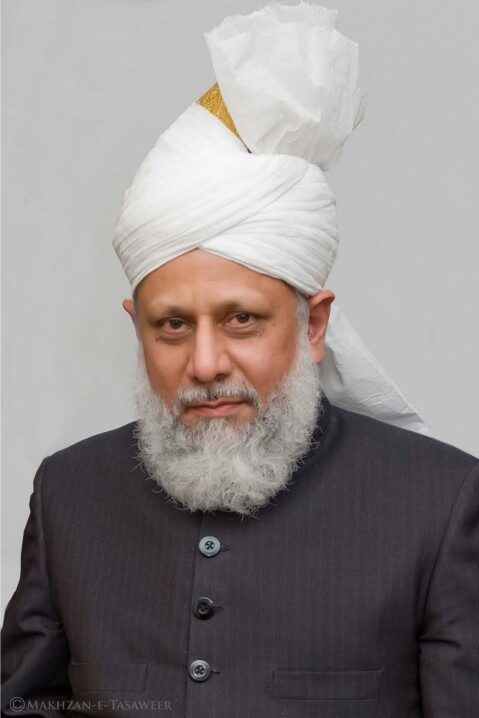
On 3 September 2016, while addressing the non-Ahmadi guests at Jalsa Salana Germany 2016, Hazrat Mirza Masroor Ahmadaa, Khalifatul Masih V said:
“It is an undeniable fact that the world’s peace is teetering on a knife-edge. With each day that passes, we witness increasing conflict and uncertainty across the globe. It is a strange and tragic paradox that even though we are more connected than ever before, we are actually growing ever more distant by the day.” (“Head of Ahmadiyya Muslim Community speaks of risks of refugee crisis & rise of the Far-Right in Europe”, www.pressahmadiyya.com)
On 29 November 2020, during a virtual mulaqat of Majlis Atfal-ul-Ahmadiyya Germany with Hazrat Mirza Masroor Ahmadaa, a question was asked whether life would ever become normal again after Covid? Huzooraa replied:
“Allah the Exalted knows best. Even though it may return to normal, the economic state that has developed after the coronavirus pandemic will have consequences for the world. Even if there is no physical warfare or major conflict, it will still take years for the global economic situation to stabilise. However, usually, we observe that the economic situation worsens under such circumstances which more often than not leads to warfare. By looking at the current situation of the world, it does seem that it could eventually lead to wars. If a war is ignited after the coronavirus, then the situation of the world will become even more perilous and it will take many years for the situation of the world to return to normal. […]
“I feel that it is quite possible that a war or a conflict could break out after this pandemic of coronavirus ends and its ruinous effects could last for many years before it returns to normality. Thus, we must pray that such circumstances may not arise, that may lead to wars and that world leaders act with sense so that the global situation can stabilise as quickly as possible and return to normal. To achieve this, it is necessary that mankind turns towards God […] We should inform people that there is only one solution to help the situation of the world return to normal and that is for mankind to turn to Allah the Exalted and to fulfil His rights and the rights of His creation.” (Al Hakam, 29 October 2021, Issue 189, pp. 7-9)
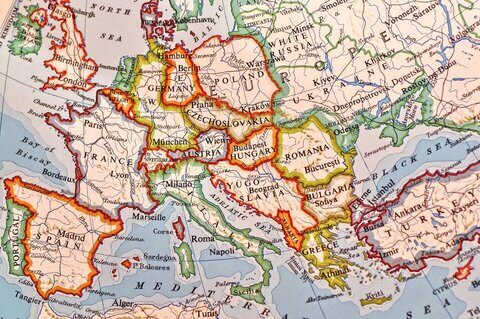
On 22 May 2021, during a virtual meeting of The Gambian journalists with Hazrat Amirul Momineenaa, a journalist referenced Huzoor’s book, World Crisis and the Pathway to Peace and said that Huzooraa had paid a lot of emphasis on global peace. He asked about the importance of justice and why it was crucial to speak out against injustices. In response, Huzooraa said:
“If there is no justice, there is no peace. If you have double standards, as we can see in today’s world shown by the big powers, they cannot maintain peace in the world. […] This is why you can see there is disturbance in the world today. So, if there is no justice, there is no peace.” (Al Hakam, 28 May 2021, Issue 167, pp. 1-2)
On 11 September 2021, during a virtual meeting of UK Khuddam with Hazrat Amirul Momineenaa, a question was asked as to what was Huzoor’s opinion on the current state of the world? In response, Huzooraa said:
“I have been telling, all the time, to the people of the world – to politicians, to leaders – that they ought to change themselves and try to establish true justice, absolute justice in the world and discharge their duties to their Creator and their fellow beings. Otherwise, there is no guarantee [about] what is going to happen, and what we can see is a very dark and bleak end of this world.” (Al Hakam, 17 September 2021, Issue 183, p. 6)
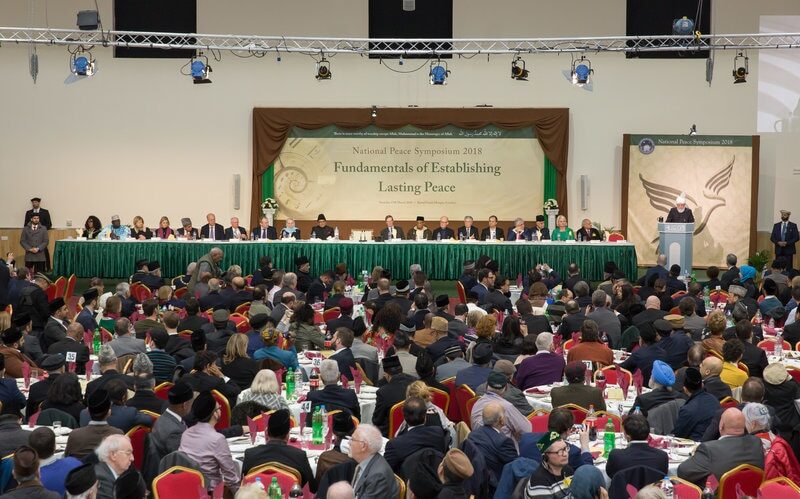
During a virtual meeting on 13 February 2022, while answering a question in regards to the possibility of the third world war, Huzooraa said:
“It is said that if Ukraine and Russia go to war then there is the danger of this evolving into a world war and resultantly nuclear weapons can be used.
“I have been warning of this for a long time, that governments should come to their senses. Nevertheless, from what it seems Russia says ‘We have no intention [to go to war]’ – America and Europe are adamant about going to war. And the current situation is that neither Europe nor Russians want to leave Ukraine. So, let’s see what happens.”
These warnings were given for a long time and now the world is on the edge of a very possible nuclear disaster between nations. May Allah enable the world leaders to pay heed to the most sincere advice and guidance given by the Ahmadiyya Khalifa, Hazrat Mirza Masroor Ahmadaa. Amin.
Related Content
- Hazrat Mirza Masroor Ahmad, the Ahmadiyya Khalifa had warned the world of Nuclear devastation
- World War III: Hazrat Mirza Masroor Ahmad warned for almost two decades, but the world failed to take heed
- USA, Russia, China, UK and France pledge to avoid nuclear war
- NATO, Russia and Ukraine: Rising tensions and a word of warning from Hazrat Mirza Masroor Ahmad
- Selective empathy: Western media’s horrific double standards amid Russia-Ukraine War
- The conflicts between Iran, Israel and the US
- Disaster in Yemen: Saudi, the West and warnings of Hazrat Mirza Masroor Ahmad (aa)
- Amnesty International: Israel imposes apartheid on Palestinians
- Riots in Kazakhstan and ramifications – Past warnings of Hazrat Khalifatul Masih
- Russia, the West & global catastrophe: We are at “doom’s doorstep” warns Doomsday Clock
- War in Afghanistan: Victory for the weapons industry
- Taiwan Conflict: The world on a verge of war between the US and China
- The 6 & 9 August 1945 tragedy of Hiroshima and Nagasaki and the Ahmadiyya call for peace
- Afghanistan, the US and Taliban: A story of injustice, terror and vested interests
- Energy shortages, economic unrest and nuclear war: World leaders must heed advice of Hazrat Mirza Masroor Ahmad

